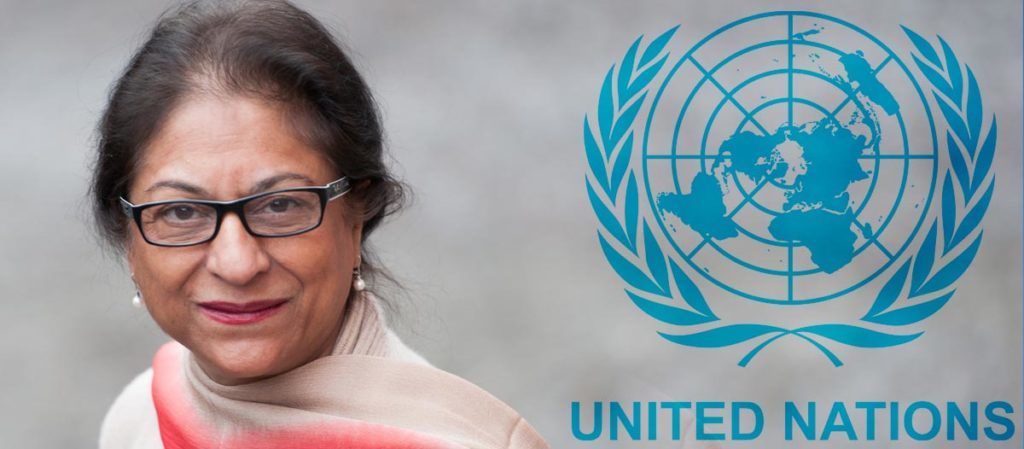March 17, 2017

Reformists in Iran are under pressure, detainees face torture and abuse, and people are being executed at an “alarming” rate, the new UN monitor studying human rights in Iran said in her first report.
“All reports indicate a high level of control over citizens and that democratic space is severely limited,” Asma Jahangir, a Pakistani national, told the UN Human Rights Council in Geneva.
As of December 13, 2016, “at least 24 journalists, bloggers, and social media activists were reportedly either in detention or sentenced for their peaceful activities,” she said.
Jahangir expressed deep concern over “the alarming level of executions” in Iran, where she said that at least 530 people were executed last year and 156 have been put to death already in 2017.
At least five of those executed in 2016 were below the age of 18 at the time of their alleged offenses, she said, noting that Iran has reportedly executed the highest number of juvenile offenders in the world during the past decade.
Jahangir said that since her appointment last year, she has received “numerous reports about the use of torture and other cruel, inhuman, or degrading treatment or punishment,” including the continued use of amputations, blinding, and flogging, as well as prolonged solitary confinement.
She cited reports by Iranian media about a blinding sentence that was carried out in November and finger amputation sentences in December.
Jahangir also highlighted child marriages in Iran where, according to the Tehran-based Association to Protect the Rights of Children, approximately 17 percent of all marriages involve girls married to elderly men.
She called on Iran to prohibit all forms of child marriage and raise awareness about the “harmful practice.” Jahangir has long been a vocal opponent of such marriages in her native Pakistan and can be expected to focus on that issue in Iran.
Jahangir also said the situation of Iran’s minorities remains of “serious concern.”
“Baha’is continue to be systematically discriminated, targeted, and deprived of the right to a livelihood,” Jahangir said. Jahangir said 90 Baha’i believers are currently detained in Iran’s prisons solely because of their religious beliefs and practices.
Jahangir also expressed concern over the state targeting of Iranian Christian converts and members of Sufi groups. “These groups continue to face arbitrary arrest, harassment, and detention and are often accused of national security crimes such as ‘acting against the national security’ or ‘propaganda against the state’.”
Jahangir took over as UN rapporteur for Iranian human rights at the end of 2016 when Ahmad Shaheed shifted to another human rights post.